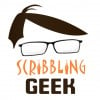can you have too long of a hub?
what factors help you decide if a hub is too long? I know different styles of hubs based on topics and what not help determine how long it is going to be. I worry about what is to many words though.
From a reader's point of view, if any article is over 1,000 words, I begin to skim or move on to something else. Personally, I don't understand this fixation with long articles/hubs. Most people using the internet do not have a long attention span so it makes no sense that Google is pushing lengthy articles. Just because Google says so doesn't make it true. None of my hubs are more than 1500 words and many of them are under 1,000 words. All of them are featured and all of them get traffic from Google and other search engines.
It is about providing options. If my article is longer, and answers what the reader wants to know, they can skim over what they are not interested in. If the article is short, and leaves a lot of questions unanwered, they will have to go elsewhere to look.
Nobody is saying that every Hub needs to be extra long. Like Jeremy Gil said. When we say longer we mean longer with good content. Not just writing more words for the sake of it. This is something I have a hard time with and I am working on myself. It is why my next Hub is taking much longer than normal as I am testing new things.
Generally we recommend staying under 10k words unless it's a creative piece.
Articles that are longer are good candidates to break up into stand-alone articles on different aspects of the same subject (for example: "Guide to Gardening for Beginners" might be split up into separate articles on "How to Choose Seeds for a Beginner Garden," "How Often to Water a Beginner Garden," "How Long Will It Take My Garden to Produce," etc).
I imagine for most subjects you are not going to write something that is too long. If you start to break 10k words maybe at that point you should consider writing a eBook. But anything under that seems fine. Remember the more detailed and informative the Hub the better. This is something I am working on myself.
Thank you I am glad to know the number was higher than I thought it would be. I am around 3000 words on a hub about changing one's mindset and was worried that it might be to long.
When Paul provided the stats of someone earning over $10k per month, he suggested 3,000 words for articles. I've also read research which suggests 2,400 words rank well. However, it does depend on the subject matter and it's important to avoid padding, just for the sake of it. The article I'm working on at the moment is close to 3,000 words. You need to monitor your own niche and see which works best for you.
Eric's right; I see too short *way* more often than too long. Articles without enough substance not only struggle to become featured, they have greater difficulty gaining views.
That said, don't add words just for the sake of length, make sure they add something to your writing. For me, I find a happy medium between having enough content to attract traffic and not spending too long on a single article to be between 1200-1600 words per hub, with a few outliers on either side.This is really good advice thank you! I am not one who writes to use a crap ton of filler words. I hate when it feels forces I prefer a no bull approach and if it is fluffed up it better have a strong emotional put or be really relevant.
One SEO consultant wrote that you should write a 5000 word article and then go back and delete all of those filler words until you end up with a lean 3000 word article. If it is not that long you are probably not answering your readers questions and are not going to rate that well on Google.
For instance, if you wrote an article about "3 games you can play with your kids when feeling sick" you would not have that much to say. The article would be short. If you write an article about "What to do when you cant call in sick" you can include that info, and a lot more. The article will be a lot more helpful to your readers.Sounds like great advice. I have been doing a little SEO research on the side myself. I would never consider myself an expert but there is a lot one can learn for free online.
Our society has become too busy and distracted with too much information thrown at readers all day long. This is especially true for those who rely on mobile devices where the pages are smaller, I think it's hard to stay focused, thus, 3,000 words (or less) should be enough for a basic article on whatever the topic is, unless you raise the Flesch-Kincaid readability scoring level and write more intensified and deeper pieces. If it's too deep, turn it into an e-book, where a reader can expect a longer, more involved article and really take the time to read it. Like OldRoses says, if it goes too long, I (and many people) end up skimming-- chances are, we'll miss something important. Add all the intrusive and distracting advertising, and it makes it difficult to stay with the content. We want to be more than content mill providers, so the readability tests may be useful when determine what our audiences can handle and digest in the time they have to read something in what is limited spare time.
I tend to skim through most web pages. God knows how quickly I flip on Stumbleupon. However, when I'm truly researching for information, or when I chance upon something that is of great interest to me, I do read every word. If these pages are long and aren't just rambling about the same points just to achieve length, I deeply appreciate the amount of work gone into writing them. I tend to also note down their URLs/authors, and revisit for updates down the road.
End of the day, I guess it's a matter of who you are writing for and what you are writing about. Fun pieces ought to be shorter, IMO. Instructional ones should be more detailed.- FatFreddysCatposted 7 years ago
0
I think the longest article I've ever written was somewhere around 2,000 words but that was an exception.
Most of the time I shoot for at least 1000 words, and try to top out at 1100-1200. Any more than that and I start to bore myself, so I imagine it would have the same effect on readers.
Mine are usually around 1500-2000 words and if they're more than that I think about how it could be two articles instead of one.
One of the main rules of editing your work is to never use any more words than you need to. In other words, avoid wordiness.
You were actually supposed to have been trained to do that in every English class you took since 7th grade.
That said, if you are writing a how-to article, it has to be as long as it has to be, and it takes as long as it takes.Agreed, avoid wordiness. It's a weird balance, making your hub long enough to attract hits while avoiding unnecessary fluff, but hey, no one ever said it would be easy.
I just published a 4,000-word hub, which is my longest one yet. I contemplated making it two articles, but decided that if I were searching for this topic, I would prefer to have it as one. Since it is a biographical hub, I wanted to do justice to the subject. If people don’t have the time, oh well.
I agree with Bede. I write until it is done. Mine are typically 2,000-3,000 words but sometimes I go over. All of my articles are featured. Hope this helps.

Related Discussions
- 38
How Long is Too long?
by Robert Lodge 12 years ago
I am in the middle of drafting a hub but am finding it to be getting quite long with a lot I still want to include. Is there a recommended (or actual) maximum length that a hub can be and is there a precedent for dividing into multiple linked parts?Many thanks,Rob
- 11
Can a Hub be too long?
by Sylvia Leong 11 years ago
Can a Hub be too long?Hello! I was just thinking that perhaps the reason my Hub scores are lower than I’d like is that perhaps my Hubs are too long? Many of my Hubs are between 2700 & 3600 words. Are these Hubs too long in terms of what Google wants or HubPages...
- 26
Is 2500 Words Too Long for a Hub?
by Dean Walsh 12 years ago
I'm working on a hub providing a beginners guide to programming languages and its getting quite long - I'm definitely going to hit 2000 words with it and will probably go up to 2500 unless I really make an effort to keep the length down.Is that too long? It seems quite a lot for a single page to me...
- 20
Is my hub too long?
by Janet21 16 years ago
My latest hub is almost 1400 words. Is that too long? Is it difficult to read? Let me know what you think. Thanks!http://hubpages.com/hub/Thomas-the-Tank … er-Railway
- 20
Do you think a hub can be too long?
by Krystal 12 years ago
Do you think a hub can be too long?
- 21
When is a Hub considered too long?
by Mary Hyatt 13 years ago
I want to write a traveloge covering six days. It will be quite lenghthy; maybe 5,000 words. Should I write one Hub or break it up into several Hubs? I'd rather not break it up. I plan to use lots of photos of places I visited.Thanks.



















